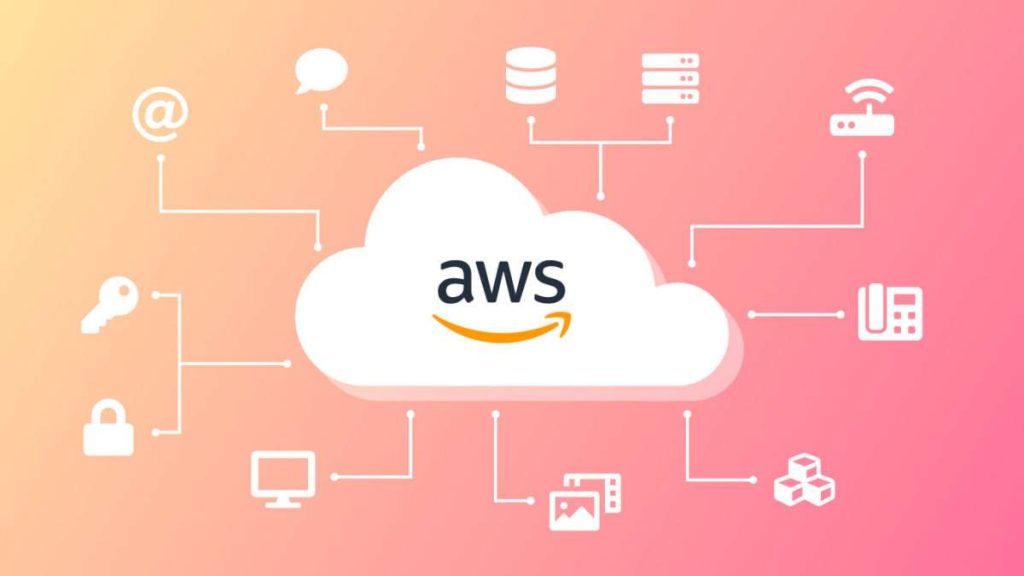
AWS vs Azure-Who is the big winner in the cloud war?
Cloud computing offers numerous advantages over traditional computing, including enhanced processing power and scalability; increased security; unprecedented cost-effectiveness; and a decreased carbon impact. If you’re interested in cloud computing, the dispute between Amazon Web Services and Microsoft Azure (AWS VS AZURE) is a hot topic.
What is AWS?

Amazon Web Services (AWS) is a cloud service platform built by Amazon that delivers services in a variety of categories such as computing, storage, delivery, and other capabilities that allow companies to grow and thrive. AWS was launched in 2006. AWS has a 31 percent share of the worldwide computing industry, according to statistics. AWS is accessible in 61 different zones.
What is Azure?

A cloud service platform developed by Microsoft, known as the “Cloud Platform,” provides services in a variety of domains, including compute, data storage, database management, network management and other functionality. Azure was Launched In 2010. Azure has a market share of 11% of the whole market in terms of revenue. AWS is accessible in 140 different zones.
Hosting online applications that are available through the internet is made possible through the usage of Microsoft Azure cloud computing technology, which is used in conjunction with Microsoft data centers. All of these services assist organizations in scaling and growing their operations, which is referred to as “operational growth.”
AWS VS Azure – Who is the big winner?
Amazon Web Services (AWS) and Microsoft Azure are two of the largest and most powerful public cloud computing service providers in the world.
Which one is the most appropriate for your needs?
Let’s take a look at the areas in which Azure and AWS thrive in order to help you make your decision on which to choose.
AWS VS Azure – Comparison
| THE BASIS OF COMPARISON | AWS | AZURE |
|
DATABASE
| There are three databases available on Amazon Web Services (AWS), which are MySQL, Oracle, and DynamoDB. | MS SQL and SQL Sync are the two databases that make up Azure. |
| STORAGE SERVICE | S3, Buckets, EBS, SDB, domains, Easy to use, SQS, CloudFront, and AWS Import/Export are among the storage services offered by AWS. | Blob Storage, Containers, Azure Drive, Table Storage, Tables, and Storage Stats are among the Azure storage offerings. |
| CLOUD SERVICE
| AWS utilizes VPC (VPC) | Azure utilizes a VM |
| PRICING | AWS provides Free Tier, Per Hour, Free Trial Per Minute, No Change for Stopped, and Pay for EBS Volume. | Azure has a Free Trial as well as a Per Minute rate. |
| BIG DATA SUPPORT | AWS offers EBS storage which is particularly well suited for managing large amounts of data. | Standard storage suffers from several limitations when dealing with large amounts of data; as a result, premium storage is required. |
| JOB
| Software Architects earn an average of $141,757 per year as “AWD engineer”.
| Microsoft Azure salaries vary from roughly $113,582 annually.
|
| Access to Machines | Machines may be accessed independently in AWS. | In order to establish a cloud service, a collection of machines is linked together and all respond to the same domain name but on various ports. |
Wrap Up
AWS and Azure both provide a lot of the same features, thus it’s not always a case of one being “better” or “worse” than the other. Since2010, Microsoft Azure has increased its market share, but not to the point where there is the actual rivalry between the two companies, at least not in the near future.
AWS and Azure both provide a lot of the same features, thus it’s not always a case of one being “better” or “worse” than the other. Both companies also provide new products, new integrations, and new pricing structures on a consistent basis.
AWS provides Infrastructure as a Service (IaaS), as well as a wide range of other services and tools to its customers while Azure is a powerful platform as a service (PaaS) cloud provider that integrates with Microsoft Windows.
As a result, the final choice will be made in line with the requirements of your organization. Both of these cloud service providers have their own benefits and downsides. Their best-in-class cloud solutions will help their market to grow rapidly in the near future. When two goods are identical, it’s difficult to identify which one delivers the greatest results.
Currently, they are neck and neck. You should choose the service that best matches your needs based on your use characteristics.
You can always change if unsatisfied.
You may also like:




